The following is the first chapter of a novel called The Twenty-One Days of a Neurasthenic by Octave Mirbeau, a French author (1848-1917) with a reputation for good writing and good scandals. Nina Sparling, the editorial intern at New Vessel Press, is currently translating the novel, and this excerpt is courtesy of her. We hope you find Mirbeau to be as funny and elegant as we think he is.
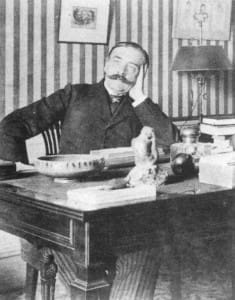 Chapter One
Chapter One
Summer, style, or caring for one’s health, which is also a style, each pushes us to go on holiday. As an affluent bourgeois, wholly obedient, respectful of urbane custom, one must, at a certain time of year, leave his business, his pleasures, his easy idleness, his dear companions, to go, without entirely knowing why, immerse himself in the great world. In the discrete language of newspapers and the distinguished people who read them, this is called a trip, term much less poetic than a holiday, and so much more correct! … Certainly, the heart isn’t always ready to take off, one could say it almost never is, but we owe this sacrifice to our friends, our enemies, our providers, our servants in relation to whom one must maintain a prestigious social position, because a vacation assumes money, and money all social superiorities.
And so, I vacation which prodigiously bores me, and I travel to the Pyrenees, which makes torturous my general boredom with vacationing. What I hold against the Pyrenees above all, is that they are mountains … However, the mountains, whose enormous and wild poetry I nevertheless sense as well as another, symbolize for me all that the universe can contain of incurable sadness, of black discouragement, of unbreathable and deathly atmosphere … I admire their grandiose forms and their shifting light … But it’s the soul of this that terrifies me … It seems to me that if there is a landscape of death, it must be mountains upon mountains, like those I have here, before my eyes, while writing.
It’s perhaps because of this that so many people love them. The particularity of the city where I am, and the “sublime idyllic beauty” of which the excellent Baedecker, a tongue-and-cheek German, sings in extravagant lyricisms, is that it is not a city. Generally, a city is made up of streets, streets of houses, houses of residents. However, in X … there are neither streets nor houses, nor indigenous residents, there are only hotels, enormous constructions, akin to barracks or insane asylums, which stretch one after another, indefinitely, in one straight line, at the base of a foggy and dark gorge, where a small stream hacks and spits ceaselessly like a bronchital old man. Here and there a few stands are set up on the ground floor of hotels; bookshops, illustrated postcards, photographic images of the cascades, the mountains, the lakes, assorted climbing equipment, and all that the tourists require. And a few villas scattered on the slopes … and, at the bottom of a hole, a thermal establishment that dates from the Romans … ah! yes … the Romans! … and that is all. In front of you, the tall and dark mountain; behind you, the dark and tall mountain … To the right, the mountain, at the base of which lies a lake; to the left, the mountain still, and yet another lake … And no sky … never the sky overhead! Enormous clouds that drag their heavy, opaque, sooty masses from one mountain to another …
But if the mountains are sinister, what to say of these lakes — oh the lakes! — whose fake and cruel blue, which is neither the blue of water nor the blue of the sky, which doesn’t fit with anything surrounding it nor is reflected in it? They seem to be painted — oh nature! — by Monsieur Guillaume Dubufe, when this artist, so beloved by Minister Leygues, elevates himself to the ponderous grandeur of symbolic and religious compositions.
But maybe I would pardon the mountains for being mountains and the lakes lakes if, to their natural hostility, was not added the bother of being the pretext to unite, among their rocky gorges and on their aggressive banks, the most unbearable specimens of all humanity.
In X … , for example, the seventy-five hotels overflow with travelers. And it’s with great difficulty that I could, finally, find a room. There are all kinds of people, Englishmen, Germans, Spaniards, Russians, and even Frenchmen. All of these people come here, not to cure their sickly livers, nor their dyspeptic stomachs, nor their ill skin … they come — pay attention here — for their own pleasure! … And from morning to night one observes them, in silent groups or dismal lines, following the strip of hotels, collecting themselves in front of the vendors, stopping for a long time at one precise spot, and pointing enormous spyglasses at an illustrious and snowy mountain that they know is there and which is there, in theory, but which they never see under the thick mantle of clouds which eternally covers it.
This whole world is enormously ugly, with that ugliness particular to spa towns. Scarcely once a day, amid the thick masks and heavy stomachs, I am surprised by a pretty face and a svelte allure. Even the children seem to be elderly. A dreadful sight, because we realize the decrepitude of bourgeois values; and all we encounter, even the children so poorly hatched in the putrid marshes of marriage … it’s already the past … !
Last night, I had dinner on the hotel patio … At a neighboring table a gentleman spoke loudly. He said:
– The climbs? … Oh, yes, the climbs … I’ve done them all, me, talking to you … and without a guide! … Here, it’s a joke … the Pyrenees, it’s nothing at all … they aren’t mountains … In Switzerland, at the right time! … I’ve been three times to Mont-Blanc … like sitting in an armchair … in five hours. Yes, in five hours my dear sir.
The dear sir said nothing, he ate, his nose to his plate. The other took up again:
– I’m not talking about Mont-Rose … nor Mont-Bleu … nor Mont-Jaune … I’m not being clever … And here, me, talking to you, one year, at the great Sarah-Bernhardt, I saved three Englishmen lost in the snow. Ah! if I had foreseen Fachoda …
He said yet more things that I didn’t quite hear but throughout he repeated ceaselessly “Me! me! me!” He continued to insult the waiter, send back entrées, discuss the kind of wine, and, addressing himself once again to his companion:
– So let’s go, let’s go! … Me, I’ve done the hardest. Me, I crossed, by oar, in four hours, the lake of Geneva, from Territet to Geneva … Yes, me … me … me!
Do I need to tell you this gentleman was a true Frenchman of France?
The music of the Tziganes stopped me from hearing more, because yes, there is also the music of Tziganes … You see that it’s all here …
So what better can I do if not to present a few of my friends, a few of the people with whom I brush shoulders here, all day long? They are, for the most part people, a few grotesque, a few repugnant; generally, perfect rascals whom I would not recommend young girls read about. I understand well that you say of me “And here, a gentleman with amusing ideas” but I have many others which are not in the slightest amusing and of which I never speak, because I cherish them infinitely. I ask you, then, dear readers, and you too, gentlewomen, not to apply to me the famous proverb “Tell me who you haunt …” Because these souls whose often ugly physiognomies I show you, whose instructive stories and nearly always scandalous propositions that I recount you, I don’t haunt them, in the proverbial sense … I meet them, which is an entirely different thing, and does not imply any approbation on my part, and I set this meeting, for your amusement and for mine, on paper … For mine!
This preamble is to explain to you that my friend Robert Hagueman is not my friend. He’s more someone I knew, before, who speaks to me casually, whom I speak to casually, and whom I see, once in awhile, randomly and without pleasure.
You know him too, from elsewhere. My friend is not an individual, but a collective. Large gray felt hat, black jacket, pink shirt and white collar, white pants with a well-marked middle pleat, shoes of white leather, they are at beaches and in the mountains; they are, at this moment, thirty thousand like Robert Haguemen, for whom we could believe that the same tailor fashioned the outfits and souls — bargain-priced souls, you understand, because these are souls made from an easy cut, a shabby fabric.
This morning, as I was leaving the drink stand, I saw my friend Robert Hagueman. He wore a morning outfit of an impeccable propriety, which did not surprise the admirable plane trees of the driveway, eminently philosophical trees, and who had seen many others, since those Romans, founders of elegant baths and the captors of the world’s power. I feigned, at first, passionate interest in the maneuvers of a worker who, armed with a pot, collected water from the stream and then spread it across the driveway, under the fallacious municipal pretext of watering them … And still, hoping to give my friend the time to distance himself, I began a conversation with the workman about his curiously Neolithic implement, but Robert Haguemen had noticed me, too.
– Ah! But it can’t be! he said.
He came to me, effusive, thrusting out his hands, gloved in white skin.
– How can it be you? … And what are you doing here?
There is nothing I hate as much as having to reveal to people my petty infirmities. I responded:
– Why, I was just taking a walk … and you?
– Oh! me! I’ve just had a treatment … It’s the doctor who sends me here … I’m a bit run-down, you see …
The conversation immediately took a banal turn. Robert spoke to me of Paul Deschanel who was expected the next day; of the Casino, which was not brilliant this year; of the pigeon hunt, which didn’t go well … etc.
– And no women, my friend, no women! … he concluded. Where are they this year? No one knows … Quite the season, you see! …
– But you have the mountains! I cried … with ironic enthusiasm … it’s excellent, here … it’s paradise on earth. Look at this vegetation … these phlox, these leucanthemum grown to the height of beech trees … and these gigantic rose bushes which seem to have been brought back from who knows what dreamland, in the hat of Monsieur de Jussieu!
– Oh, how you are young!
I exalted:
– And the streams, and the glaciers … All this really means nothing to you?
– You’re humoring me … responded Robert … Do I really have the air of a man who falls for that sort of thing? I’m not excited by streams. And what’s marvelous about the mountain? … It’s the Mont-Valérien, a little bigger perhaps, that’s all, and frankly less amusing …
– You prefer the sea, then?
– The sea? Ah! What’re you getting at? … Come, my boy, for fifteen years, every summer, I’ve gone to Trouville … well, if I can brag about one thing, it’s … to not once have looked at the sea … It disgusts me. Oh! no … I think I’ve got better things on my mind, than going to marvel at what you call the sights of nature … I’ve had my fair share of that sort of thing, don’t you know?
– So, you came here for you health? … Are you at least following a treatment?
– Strictly … said Robert … Without that! …
– And what are you doing?
– As a treatment?
– Yes.
– Well, you know … I get up at nine o’clock. Walk in the park by the drink stand … Meet with someone or another … you relax a bit … then one recounts to the other what annoys him … we criticize the uniforms … This gets me through just until lunch … After lunch, a poker game at Gaston’s … At five, Casino … stand around a listless game of baccarat … maybe a game of push pennies, the family bank … dinner … the Casino again … And that’s it. And the next day, it begins again … Sometimes a short interlude with a lass from Toulouse, or a Phryné from Bordeaux … Oh! my my! my dear friend … Well, do you believe it? This so lauded resort which cures all sicknesses … it does nothing for me … I’m as run down as when I arrived … What a joke, these thermal waters …
He sniffed the air and said:
– And always this stench! … Can you smell it? It’s awful …
Indeed a sulfurous odor, coming from the drink stand, circulated among the plane trees.
My friend began again:
– That smells of … yes! … oh! What a memory … it smells like the marquise’s….
He began to laugh loudly.
– Go figure … one evening … we were supposed to, the Marquise de Turnbridge and I, dine at a restaurant …You remember the marquise … the tall blonde who I was with for two years? … No? … You don’t remember? … But, my friend, everyone knows that in Paris! Anyway, no matter …
– What was it with this marquise? I asked
– A very chic woman … my friend … Former washerwoman in Concarneau, she became, by the grace of I no longer know whom, a marquise, and marquise de Turnbridge, again … And an intellectual, I can only tell you that! … Well, so, instead of dining at the restaurant, as it was first decided – on a whim – that the marquise would prefer to eat at home … Of course! … We went back to her place … but hardly had the door closed again, when a terrifying odor suffocated us in the foyer: “My God! … said the marquise … it’s my mother still … I’ll never get her to stop doing that …” And, furious, she directed herself towards the kitchen. The noble mother who was steeping a pot of cabbage soup was there … “I don’t want to you to make cabbage soup here! … I’ve told you twenty times … It plagues the apartment … And if I had brought another man than my lover … how would I have looked, with this stench of toilets? … Is this understood, at last?” And turning towards me, she added “My God! you would think a whole regiment of soldiers came to fart here …”
He got all melancholy at this memory … and he exhaled:
– She was nevertheless a marvelous woman … you know? … And so chic!
And he repeated:
– Well, this odor following you here … it makes me think of the cabbage soup of the mother Turnbridge … It’s the same thing …
– The memory of the marquise must make it easier to handle … I said.
And he, extending his hand:
– So, to better health … I’m interrupting your treatment …
– Is that so … Am I …? said Robert.
But I had hopped across the lawn, in an instant placing, between my friend and me, the width of a giant redwood.
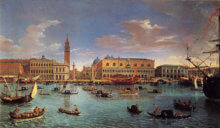

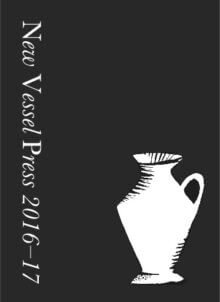
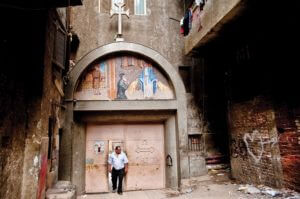
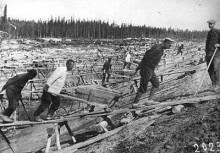
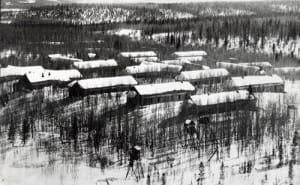

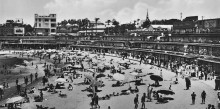

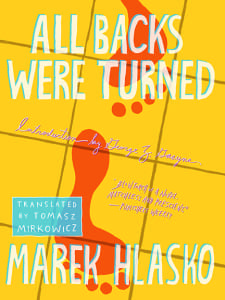
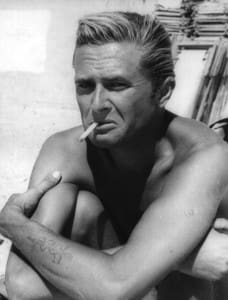
 NVP: There is something fantastical about this novel, but it remains so grounded in reality: the realities of history, the realities of the aging body. How did you find a balance between Levadski’s playfulness and the gravity of both his past and his present?
NVP: There is something fantastical about this novel, but it remains so grounded in reality: the realities of history, the realities of the aging body. How did you find a balance between Levadski’s playfulness and the gravity of both his past and his present?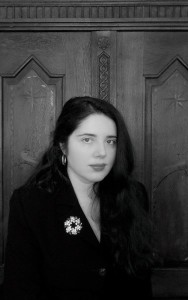

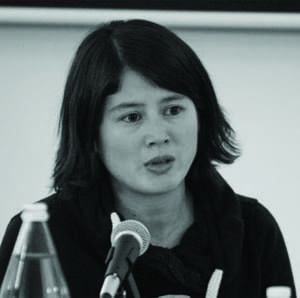
 Chapter One
Chapter One


